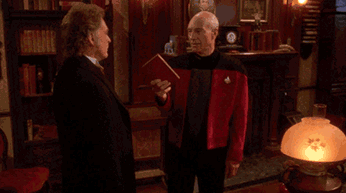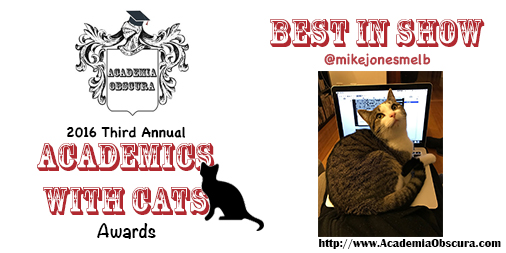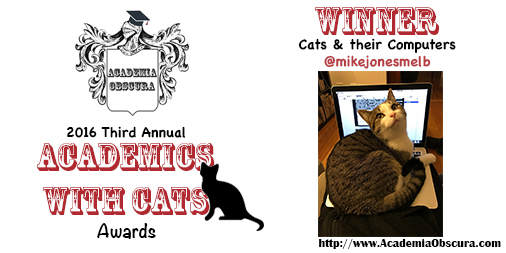What a year.
So many aspects of 2016 were awful in so many ways. The horror-shows that were Brexit and the US election. The rise of minor parties and failures of policy and basic humanity (Dutton anyone?) that characterise the Australian political landscape pre- and post-election. Heartbreaking stories of refugees fleeing for Europe and the plight of those who remained in cities like Aleppo.
There were some great experiences too. Music is always an important feature of my life and this year was no exception, from the Ring Cycle in Melbourne and Placido Domingo at La Scala to jazz at the Village Vanguard and Iron Maiden at Rod Laver Arena. It was also a year of loss: Bowie (which still hit me harder than all the rest), Lemmy, Prince, Leonard Cohen, Sharon Jones. And, on a personal level, it was a year of new relationships and new friends.
But I’m not here to talk about any of that. People sometimes wonder what the year of an archivist/PhD student/consultant looks like so I thought I’d summarise mine. TL;DR: it was busy.

2016 was the second year of my PhD, after an interesting, enjoyable and successful first year.
My research year was dominated by interviews and meetings, as well as continuing to read widely (and create longer and longer lists of things I need to find the time to read). Over the past nine months or so I’ve recorded interviews with nearly a dozen staff from Museum Victoria, as well as interviews and meetings with people from the Museum of Applied Arts and Sciences, the Australian Museum, the Smithsonian Institution, the American Museum of Natural History, the Carnegie Museum of Art, the Tate, the Victoria & Albert, and the Wellcome Collection.
I’ve done archival research at Museum Victoria and the Smithsonian, and received tours of a number of other archives; and this year I visited (at last count) 47 museums in 11 cities: Melbourne (home base); Los Angeles, Washington D.C., New York, Pittsburgh (April); Hobart (June); Milan, Cologne, London (July); Seoul (September); and Sydney (October).
Along the way I gave a bunch of papers and presentations:
- Jones, Michael, ‘What we talk about when we talk about things,’ Digital Humanities Australasia, Hobart, Australia, 20-23 June 2016.
- Jones, Michael, ‘Mind the gaps: missing connections in museum documentation,’ ICOM Milano 2016: 24th General Conference, Milan, Italy, 3-9 July 2016.
- Jones, Michael, ‘The decontextualised object: archives, evidence, knowledge and loss,’ International Council on Archives Congress 2016, Seoul, South Korea, 5-10 September 2016.
- Panel: Michael Jones, Deb Verhoeven and Cassie Findlay, ‘The Ubiquitous Archive: non-binary perspectives on contemporary humanities practice,’ Forging Links: 31st National Conference of the Australian Society of Archivists, Parramatta, Australia, 17-21 October 2016.
- Jones, Michael, ‘Missing links: museum archives as evidence, context and content,’ Forging Links: 31st National Conference of the Australian Society of Archivists, Parramatta, Australia, 17-21 October 2016.
- Jones, Michael, ‘Folklore and field books: museums, archives and the documentation of diverse collections,’ History, Culture & Collections – 2016 Humanities Department Seminar Series, Museum Victoria, Melbourne, 9 November 2016.
- Jones, Michael, Sarah Slade, Daniel Wilksch and Owen O’Neill, ‘Bread & Stones: historians using and preserving digital sources,’ Making Public Histories Seminar Series, State Library of Victoria, History Council of Victoria and Monash University, State Library of Victoria, Melbourne, Australia, 16 November 2016.
I had some things published:
- Jones, Michael, ‘Archives Alive: Expanding Engagement with Public Library Archives and Special Collections,’ Archives and Manuscripts, Vol. 44, No. 1, 2016, pp. 49-50. DOI: 10.1080/01576895.2016.1135714
- Jones, Michael, and Deb Verhoeven, ‘Treasure Trove: why defunding Trove leaves Australia poorer,’ The Conversation, 26 February 2016. https://theconversation.com/treasure-trove-why-defunding-trove-leaves-australia-poorer-55217
- Jones, Michael, ‘Documenting Things: bringing archival thinking to interdisciplinary collaborations,’ Australian Library Journal, Vol. 65, No. 3, 2016, pp. 213-223. DOI: 10.1080/00049670.2016.1204976
- Jones, Michael and Richard Vines, ‘Cultivating Capability: the socio-technical challenges of integrating approaches to records and knowledge management,’ Records Management Journal, Vol. 26, No. 3, 2016, pp. 242-258. http://dx.doi.org/10.1108/RMJ-11-2015-0035
I wrote a couple of things which will be published next year:
- Jones, Michael, ‘Linking items, connecting content: The Donald Thomson Collection,’ in Caroline Fuchs and Christine Angel (eds.), Organization,Representation and Description through the Digital Age: Information in Libraries, Archives and Museum, De Gruyter Saur [July 2017].
- Jones, Michael, ‘From Personal to Public: field books, museums, and the opening of the archives,’ Archives and Records [2017]
And I won some awards:
- 2015 Wyselaskie Scholarship in History, given to the student with the best performance in the first year of the PhD.
- 2016 Sharman Award, Australian Society of Archivists.
- 2015 Mander Jones Award (Australian Society of Archivists) – Category 6: Best article or chapter about archives written by an Australian in a journal or newspaper or within an anthology / monograph not primarily intended for archivists or records managers, awarded to Michael Jones for “Joining the Dots: Building Connections within GLAM Organizations” in Juilee Decker (ed.), Collections Care and Stewardship: Innovative Approaches for Museums, Rowman & Littlefield, Maryland and London, 2015, pp. 91-98.
And amongst all this, I was still doing some paid work (including some freelance consultancies) to keep my practical skills up to date and my bank balance in the black.
Looking back on all that, it’s a surprise I found any time to actually work on my thesis, but it seems I did. I wrote another two chapters for my second year review, and though they still need considerable work the fact I am over the 40,000 word mark feels like an achievement.
One area that has suffered, unfortunately, is this blog – only eight posts this year – so that’s something I will have to try and improve on in 2017.
Then, just when I was starting to wind down and tick off a few final tasks (an abstract for another journal article, a report, a book review) some news arrives to cap off my year: turns out I’m a dual winner in Academia Obscura’s third annual Academics with Cats awards 2016, which also resulted in my first ever mention in Times Higher Education.
I can’t top that. Time for a break; see you in 2017!



December 24, 2016 at 11:05 am
You make PhD life look amazing Mike!
January 3, 2017 at 2:18 pm
I feel exhausted just reading about all your achievements!! What a year Mike. Congratulations…..well-deserved, especially your dual-winning Academics with Cats Awards. Well done 🙂
January 4, 2017 at 11:56 am
Thanks Helen! It was a big year – hopefully 2017 will be just as fun (if a little quieter).